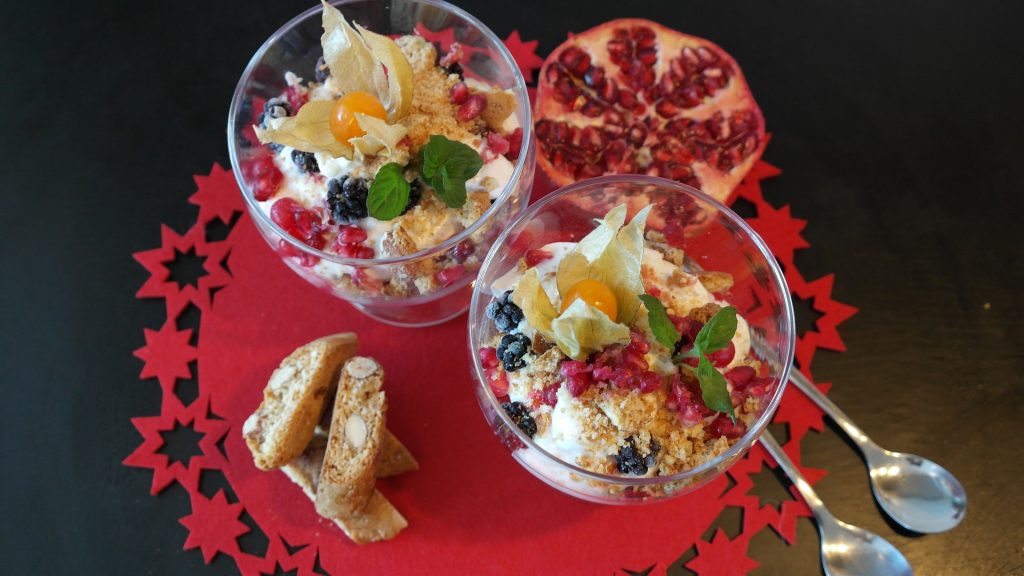How to Eat Healthy this Winter

Winter weight gain, while a household word, is not a laughing matter. Holiday weight gain, in particular, has been shown to have lasting negative effects, and scientists believe that it may lead to the long term weight gain that many people experience incrementally over their lifetime.
Factors that lead people to eat less healthy diets in the winter, and tips for avoiding them:
Traditional winter foods:
Beyond holiday foods, traditional winter foods such as hot cocoa, pot roast, and other cold weather dishes are higher in fat, carbohydrates and sugar than lighter summer fare. Both instinct and tradition lead our palates in this direction. We have not had central heat for very long in terms of human evolution. Cold does burn more calories but people are exposed to much less of it than they were 100 years ago.
Not only have cultures and families passed ‘comfort food’ recipes from generation to generation but instinct compels people to crave these foods. Additionally, as air conditioning has made living in hot areas such as Florida tolerable, pleasant winter memories awake similar yearnings in warm regions.
A consciousness of this pattern and it’s risks is one of the keys to healthy winter eating. Many nutritionists agree that food cravings should be dealt with as a treat. This also helps avert the depression that often follows ‘breaking a diet’ or binge eating.
Seasonal Affective Disorder and the holiday blues:
Seasonal Affective Disorder, or SAD, is now classified as a specific syndrome that occurs during a certain part of the year. This complicated major depressive disorder is linked primarily to the amount of sunlight exposure and secondarily to the season itself. While the experience rate is 9.9% of the population in Alaska, it is 1.4% in Florida, but not absent altogether.
The holidays may inspire depression due to loneliness or the loss of loved ones. Conversely, people that have very happy holidays may feel depressed when the season is over and the long winter stretch begins. Overeating can be both a cause of and trigger for depression.
Recognizing and treating these syndromes for what they are is the first line of diet defense during and after the holidays. The Mayo Clinic advocates therapy and other treatments for depression. Simple awareness of the ‘big picture’ may prevent the guilt that accompanies the over indulgence that is symptomatic of the winter blues.
Holiday festivities:
As if the cards weren’t already stacked against maintaining a healthy diet all winter, the holidays center around abundant food. Beyond family parties, there are often office parties. Even shopping malls and offices offer treats for their visitors.
Many nutritionists, including David NW. Grotto, RD, LD and Carolyn O’Neil, RD, advocate “managed cheating” or “structured splurging”.
The theory behind this is that almost no one can stick to a diet plan perfectly forever and that either turning down favorite treats or consuming them can lead to feelings of sadness or failure.
While many diet plans suggest a once a week cheat day, long term healthy eating and the mixed pattern of holiday parties don’t lend themselves to this. Alternate tips are to accept small portions, buy only the highest quality of what you crave, and to truly focus on enjoying every bite you eat. They suggest avoiding taking bites while watching the TV or while in conversation.
General guidelines for eating healthy all winter:
Eat a healthy diet at home:
When people have a good understanding of their own psychology in regards to eating, they find it easier to avoid overindulging due to depression and guilt as well as the reverse. For the majority of the winter, well beyond the holiday season, having a managed splurge day may be essential to maintaining a healthy long term diet. Many people choose Sundays. During the holidays a more flexible approach may be necessary.
A healthy diet consisting of whole grains, lean meat, fish, fruits, and vegetables or whatever diet you have chosen from the array available, is what you should try to maintain year round. It’s considered unwise to keep foods that are off limits in your kitchen.
During the holidays, stocking up on a few classic treats that conform to your diet may help control cravings. Sugar free, naturally sweetened, vegan, and paleo friendly holiday cookies are easily found in most groceries.
Eat consciously before parties:
Before holiday events, it’s useful to eat something light, healthy and somewhat substantial. Yogurt with fruit and granola is a popular choice for a breakfast or lunch before a party or holiday meal. Some people prefer a smoothie.
Fasting after a holiday feast is inadvisable, even for people who are not on a weight loss diet. A fast followed by a feast has unfortunate effects on people’s metabolisms. Nutritionists recommend simply returning to a healthy diet, without splurges, for a few days after a big meal. After this, a short juice fast is acceptable if you feel the need for it or if it is a part of your diet plan.

















